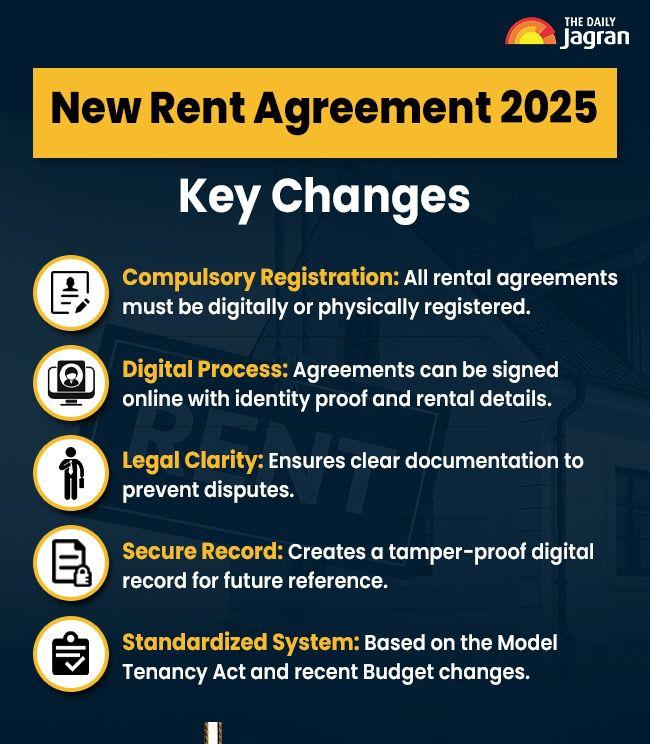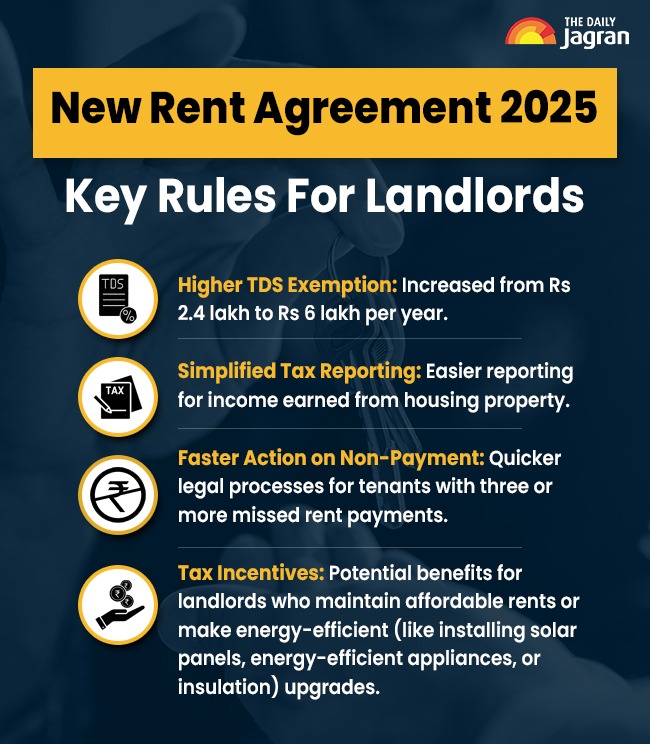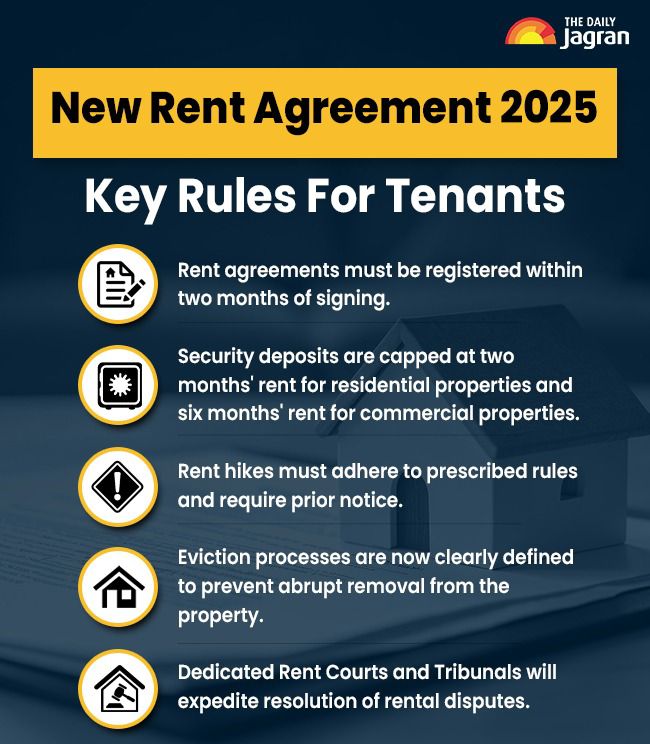- By Priyanka Koul
- Mon, 24 Nov 2025 03:53 PM (IST)
- Source:JND
New Rent Agreement 2025: The Union government has introduced the New Rent Agreement 2025 rules to bring greater order and transparency to the country’s rapidly expanding rental market. These new rules are designed to provide more clarity, fairness, and legal protection to both tenants and landlords, aiming to address the rising number of rental disputes in urban areas. With these reforms, the government seeks to simplify rental relationships and reduce misunderstandings.
A key change is the requirement for all rental agreements to be written and formally registered within two months of signing, either online through state property portals or at local registrar offices. A late registration will incur a penalty of Rs 5,000. Previously, many rental arrangements were informal or based on verbal agreements, which often resulted in disputes. Now, every tenancy must be properly documented, with clear terms regarding rent, deposit, notice period, responsibilities, and eviction.
What Is The New Rent Law In India?
The new rent law in India is based on the Model Tenancy Act and recent announcements in the budget. Over recent years, renting a home has become increasingly difficult for working families, students, and migrants. The New Rent Agreement Rules for 2025 address many of the challenges faced by both tenants and landlords.
Recommended For You
The Daily Jagran spoke to Mohini Priya, Advocate on Record, Supreme Court of India, to understand the key rights and rules under the new framework for tenants and landlords.
1. Written Rent Agreement
Under the new framework, no property may be rented without a formal written agreement between the landlord and tenant. This agreement must include key details such as the rent amount, tenancy duration, security deposit, terms for rent revision, and other essential conditions. Both parties must notify the Rent Authority about the agreement within two months of its signing.

2. Security Deposit Limits
The Act caps the security deposit that can be taken in advance:
- Residential properties: No more than 2 months rent.
- Non-residential properties: No more than 6 months rent.
The deposit must be refunded when the landlord reclaims possession of the property, although deductions may be made for unpaid rent or damage to the property.
ALSO READ: It’s My Right: Legal Protections Every Woman Should Know During Arrest And Detention
3. Duration of Tenancy and Renewal
The tenancy continues for the agreed term in the rent agreement. If either party wishes to extend the tenancy, a new agreement or a formal renewal must be entered into, and the updated terms must be reported to the Rent Authority within the specified time frame.
4. Is It Legal To Increase Rent Every Year?
Any revision of rent must follow the terms specified in the tenancy agreement. If the agreement does not mention rent increases, the landlord must provide written notice (at least three months in advance) before raising the rent, and the revision must adhere to the rules set out in the Act.
5. What Is The Notice Period For Rent Agreement?
There has been no change. Tenants should remember that they cannot be asked to leave overnight. The law protects your right to peaceful living , no landlord can force or threaten you to vacate.
- For tenancies over one year, give 2 months notice or pay 2 months rent instead.
- For tenancies under one year, give 1 months notice or pay 1 months rent instead.
- No notice is needed for fixed-term tenancies (e.g. 6-month or 1-year lease) if leaving at the end of the lease period.
- For tenancies over five years, the landlord can ask you to vacate with 6 months notice without providing a reason.
Check existing laws on notice period here.
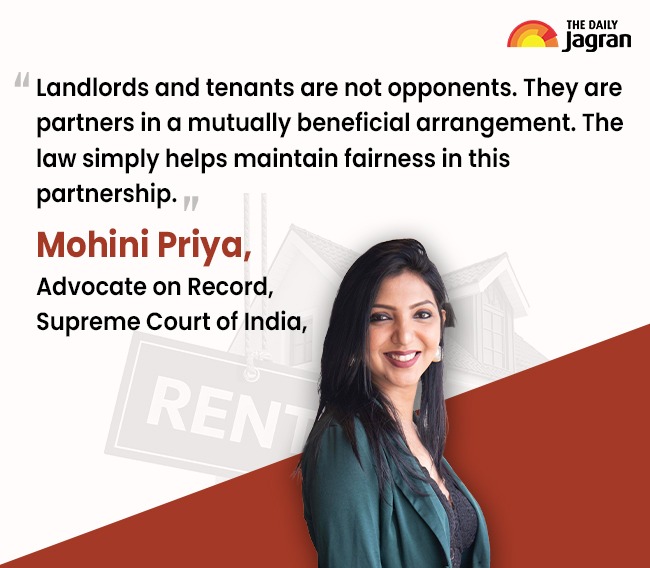
6. Protection of Possession and Eviction Grounds
Once a valid tenancy is established, the tenant has the right to peaceful possession of the property for the duration of the agreement, as long as they comply with the terms. A landlord can seek eviction only under specific circumstances, such as:
- Non-payment of rent for over two months.
- Unauthorised subletting or occupation.
- Misuse of the property after written notice.
- Unauthorised structural changes.
- Expiry or termination of tenancy, with refusal to vacate.
- The landlord's legitimate need for the premises.
Eviction must be authorised by the Rent Authority or Rent Court, following proper legal procedures. Landlords are prohibited from taking matters into their own hands, such as locking tenants out or cutting off essential services.
ALSO READ: It’s My Right: Facing Harassment During WFH? How POSH Act Protects Employees Beyond Office Walls
6. Overstaying and Penal Rent
If a tenant remains in the property after the tenancy has expired or been terminated without a new agreement, the landlord can charge enhanced (penal) rent for the period of overstay. The penal rent may be a multiple of the original rent, as outlined in the Act or directed by the Rent Authority.
7. Repairs and Maintenance
The Act divides responsibility for repairs between the landlord and tenant:
- Tenants are responsible for routine maintenance, including minor plumbing repairs, replacing bulbs and fuses, and general upkeep of the property.
- Landlords are responsible for major repairs, such as structural work, plumbing, electrical systems, and any necessary repairs to maintain the property’s habitability.
These responsibilities should be clearly outlined in the rent agreement.
8. Digital Platform and Dispute Resolution
A three-tier dispute resolution mechanism will be put in place, comprising the Rent Authority, Rent Court, and Rent Tribunal. These bodies will handle all disputes related to rental agreements, with an emphasis on speedy and efficient resolution. Civil courts will not have jurisdiction over matters covered by the Act.
Conclusion: New Rent Agreement 2025 - Clearer Terms, Fairer Deals for Tenants & Landlords
The Model Tenancy Act is a template law and will only be implemented in a State or Union Territory when it is formally adopted through new legislation or amendments to existing rental laws. Therefore, the specific rules governing tenancies will vary depending on the local laws in force.
The New Rent Agreement 2025 rules aim to foster a more transparent, fair, and balanced rental market. The relationship between tenants and landlords should be seen as a partnership, where both parties have clear rights and responsibilities. By enforcing the registration of agreements, limiting deposits, and setting clear rules for rent increases, the government hopes to create a healthier rental ecosystem for everyone involved.
(Disclaimer: This article is part of the series 'It's My Right'. The views expressed in the article are for informational purposes only and do not constitute legal advice. To read more articles in the series, click here)

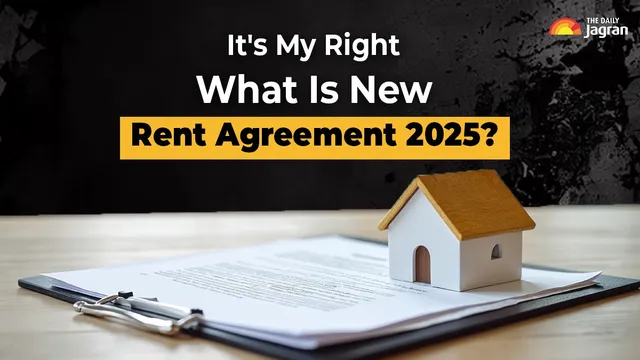
-1762924998307_m.webp)



